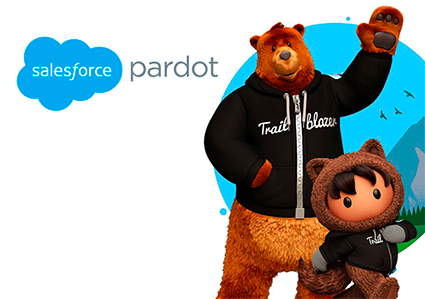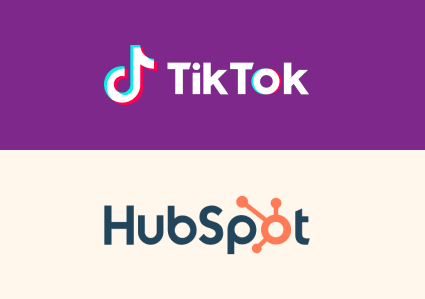The boom in online shopping and digital processes accelerated digital transformation in all types of companies, increasing competition and making clear the need for a qualified sales team to transform a potential customer into a final customer. Differentiation from the competition becomes a key and determining factor for the sale, although it is also decisive to know in depth the needs of our potential client and provide them with the solutions they need.
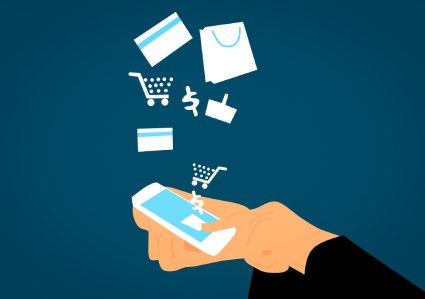
For this, a well-nourished database will be our best ally, so in this article we are going to see how it is possible to integrate your HubSpot CRM with your online store.
Nowadays, more and more companies are looking for a way to bring together all the available information in a single tool, thus streamlining processes and reducing possible errors or loss of information.
Inbound marketing for ecommerce
As you already know, HubSpot gives you all the tools you need to drive more traffic to your website, convert those visitors into customers, increase repeat purchases, and analyze how your marketing efforts are contributing to your bottom line.
But in addition, it has numerous native integrations that allow us to migrate data from our online store to our HubSpot CRM in real time, being able to use that information to contact our prospects in a complete lead nurturing campaign. Now we can learn if a prospect became client by making a purchase in our online store or if, on the contrary, they started the purchase process but did not finish it.
Don’t you think it would be interesting to have this information to be able to contact that user who left their cart abandoned? Or to be able to segment your users according to their interests in the products?
{{cta(‘456e8f0b-39db-4c9b-ae23-7254a8992c86′,’justifycenter’)}}
Unify the data from your HubSpot CRM with your online store
HubSpot has a native integration with the main Ecommerce platforms, such as Woocommerce, Shopify or Prestashop, which will allow you to have all the data of your store in your CRM and shape your marketing strategy thanks to them.
What makes this integration easier for us? Here are some examples:
-
Creating smart lists segmenting users with data from our online store. We can make a list of those recurring customers, to send a discount to all those who have purchased more than 5 times in the last year:
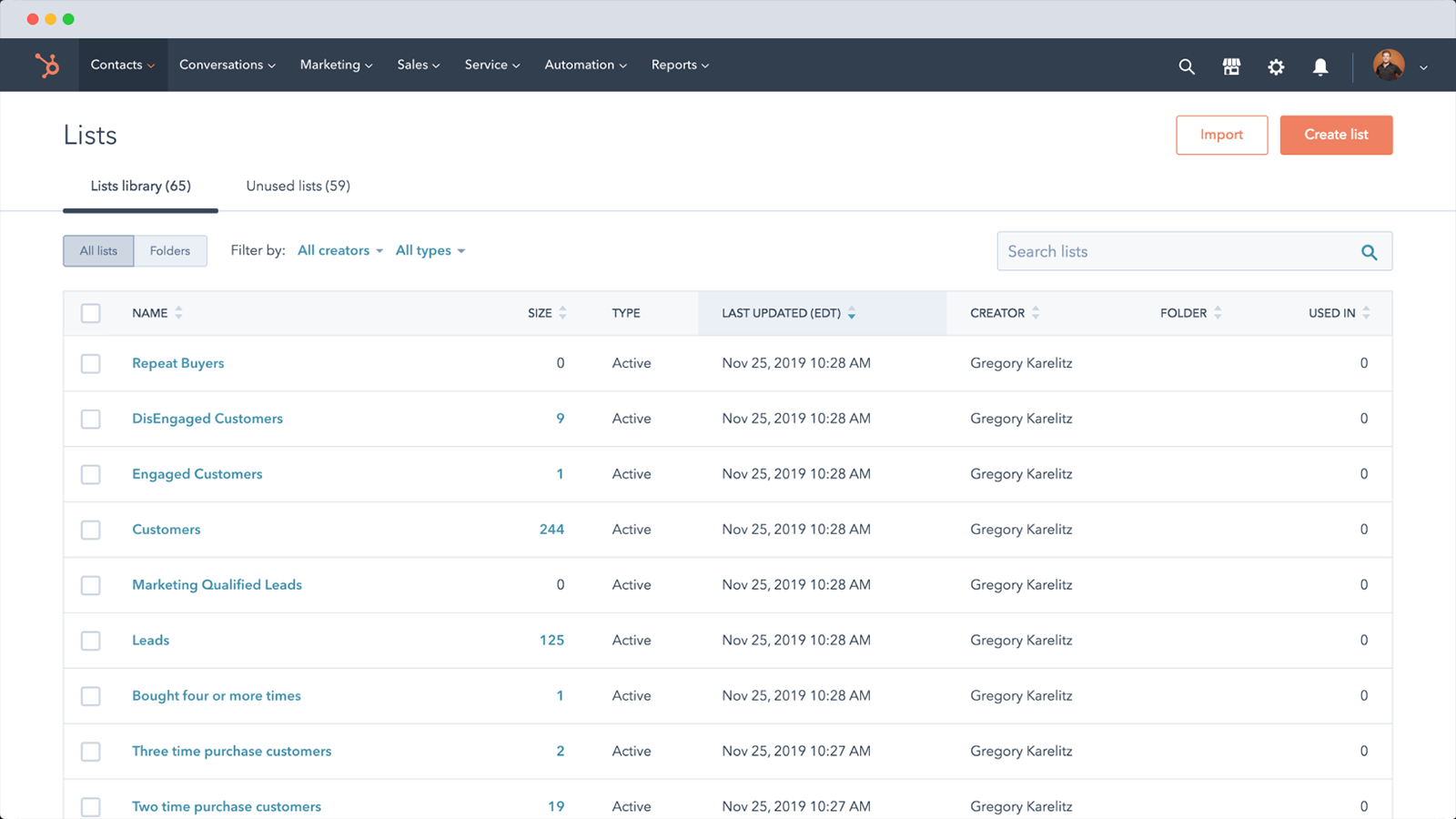
-
Creating of automations or workflows, to send an email to all those users who have an abandoned cart to remind them that they still have products in their cart:
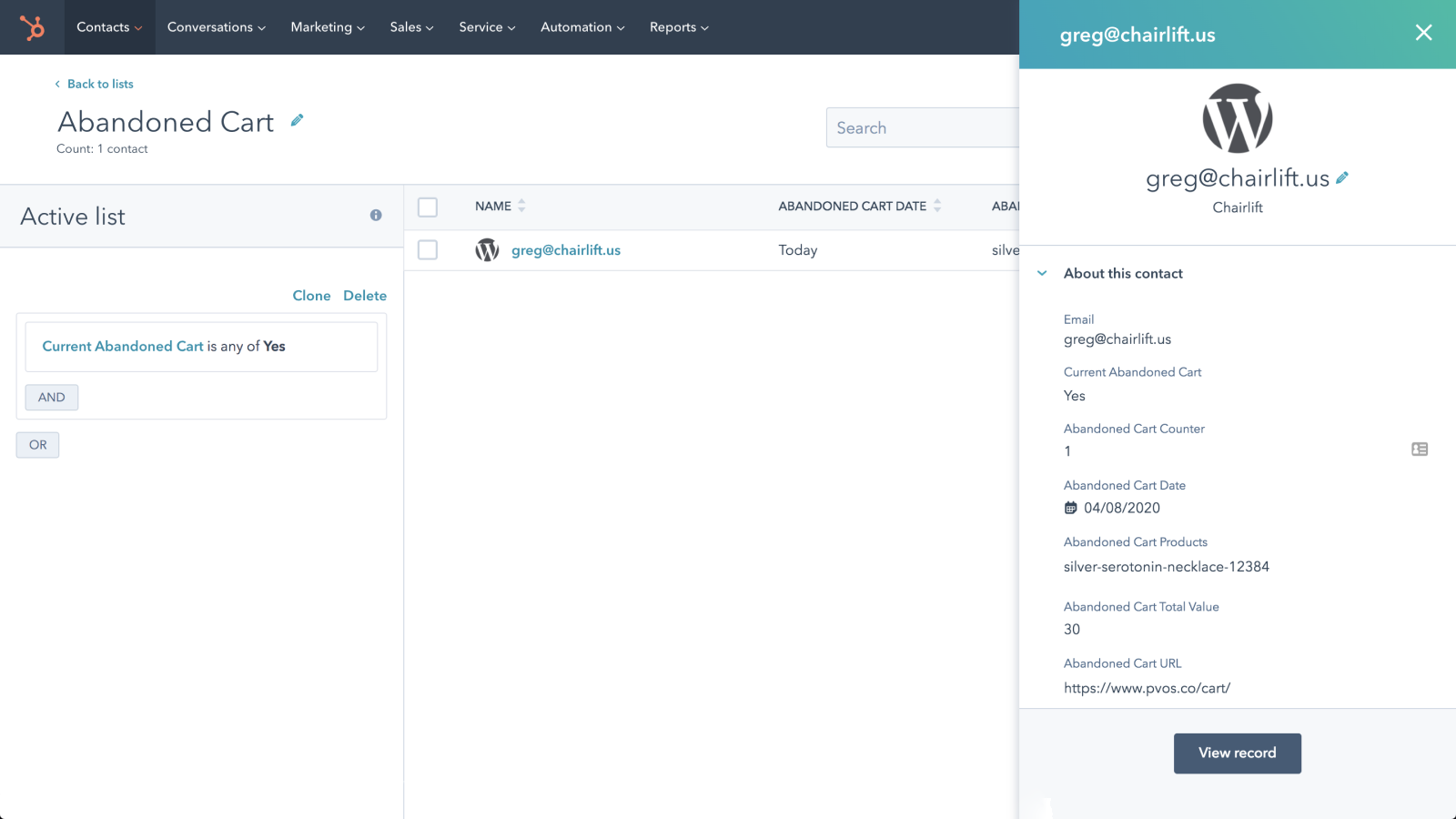
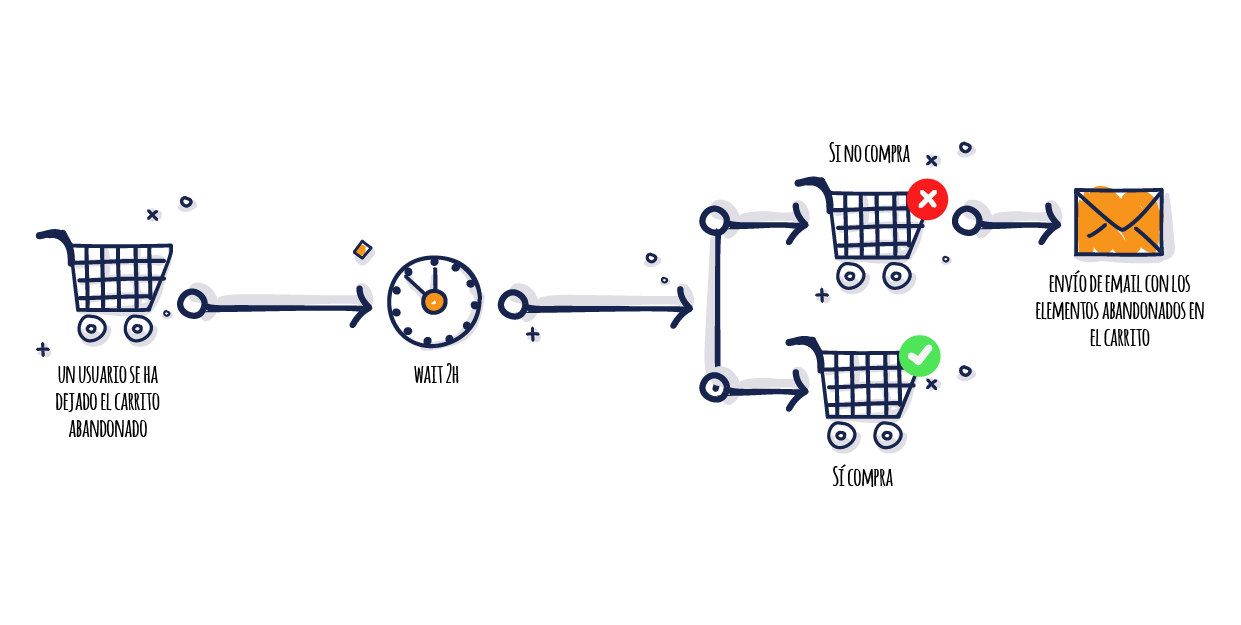
-
Smart sales reports with an E-commerce panel, where we can see data about website traffic, market trends or customer behavior in our store:
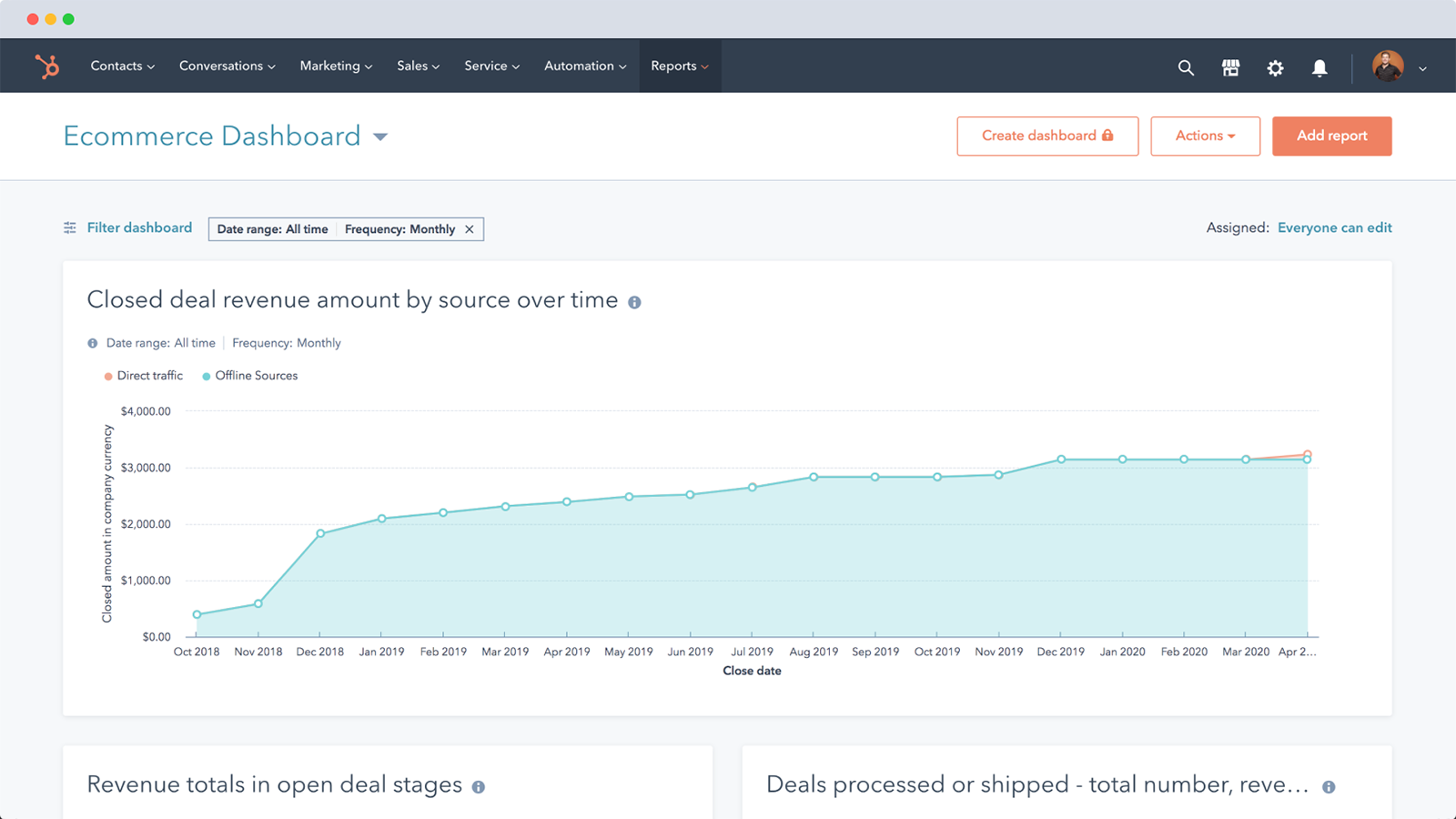
Do you know what this means? You will no longer have to compare between platforms or include relevant data from your store manually in your CRM, because now everything is integrated and this data will appear as properties within HubSpot.


